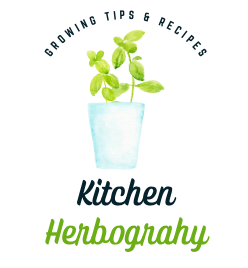As an Amazon Associate I earn from qualifying purchases. This website also participates in other affiliate programs and may earn commissions if you shop through the links used on this website.
(This article was originally published on July 27, 2022 and was last updated on August 10, 2022)
It’s no surprise that a guinea pig’s adorably tiny features often persuades many guinea pig owners to treat them to whatever their pet parents are eating!
However, just because guinea pigs (or cats, or dogs!) may seem interested in green colored human food, doesn’t necessarily mean that they reap all the benefits as humans do!
Luckily when it comes to guinea pigs and basil, it is safe.
So, can guinea pigs eat basil?
Yes, guinea pigs can enjoy basil. Basil, like many components of any healthy diet, can be enjoyed by guinea pigs, but only in moderate amounts and following certain guidelines.
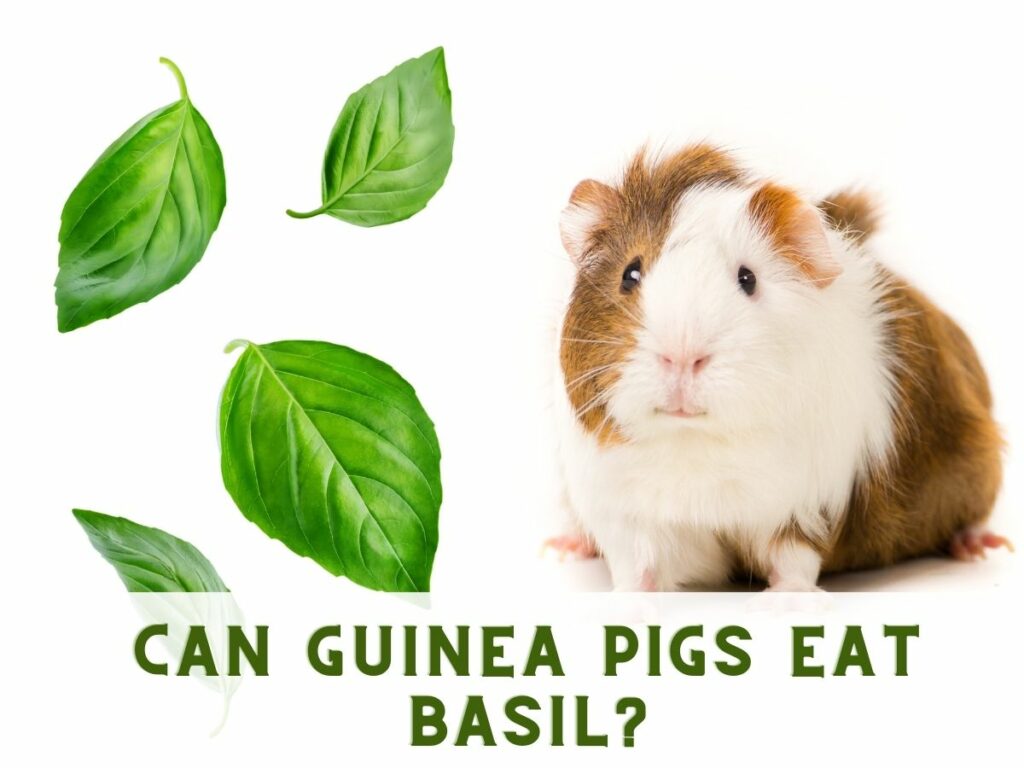
In this article, I’ll delve into the intersection of the world of basil and the world of guinea pigs, and tell you all you need to know about:
- Basic dietary care for Guinea Pigs, and how basil fits in
- Nutritional benefits and risks of the basil plant for guinea pigs
- Feeding your guinea pig basil – how much, how often, which parts, and how to prepare
- Common dietary health complications in guinea pigs and how to spot them
Before I start, I’ll also give you an introduction to how a guinea pig’s digestive system works, which should help you understand why guinea pigs can eat basil in moderation.
So, sit back, try not to get too hungry, and enjoy learning about this nutritious herb…pesto anyone?
DISCLAIMER: This blog post is not intended to be veterinary or professional advice. If in doubt, speak with your veterinarian about your pet.
How Does a Guinea Pig’s Digestive System Work?
We all know that guinea pigs are herbivores, but what does that mean and why is it so important when it comes to their diet and how much basil they eat?
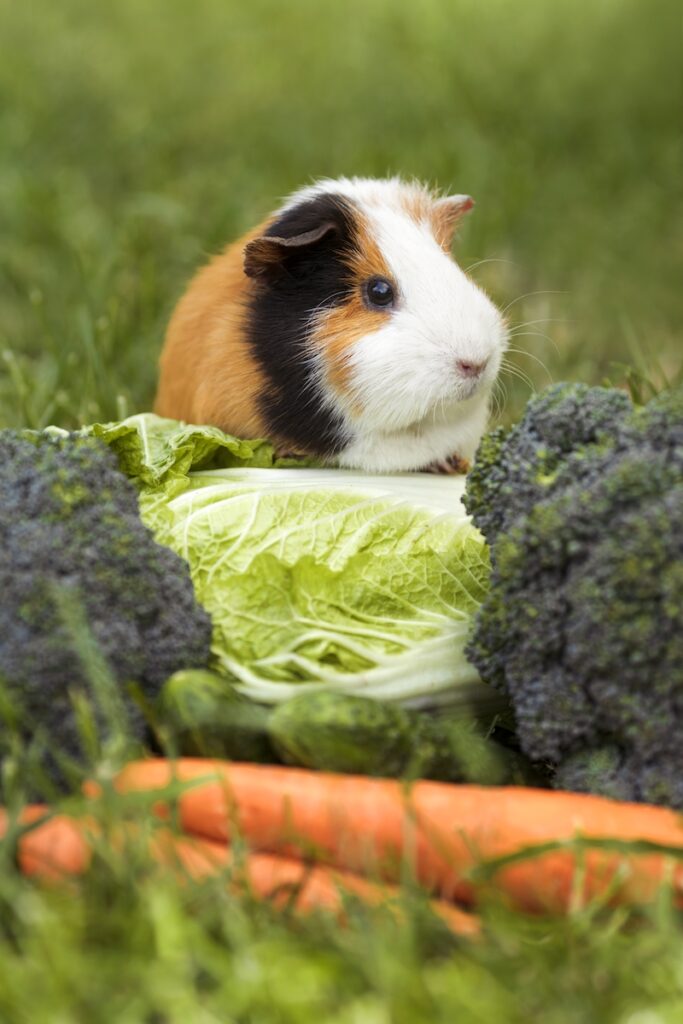
Guinea pigs (like horses and rabbits, too) are hind gut fermenters. This means most of their digestion happens in the parts of their intestine (gut), called the cecum and colon.
Microorganisms (called protozoa and bacteria) in these parts of the digestive system break down the food within them and make their components useable by the guinea pig.
Fibre, in any diet, plays 2 important roles in this process.
Eating fiber (such as vegetable matter, or herbs) makes it easier for food to pass through a guinea pig’s digestive tract and, for them to digest and absorb food as it does.
Secondly, those helper microorganisms we talked about earlier? They also need fiber to work in the most efficient way.
As an interesting aside, guinea pigs also practice ‘coprophagy’ or more simply, eating their feces. Don’t worry about your guinea pig’s health if you see them performing this peculiar behavior! No one knows exactly why they do it yet, but it’s probably something to do with getting everything they need from their food in the most efficient way.
Personally, I’d choose basil over coprophagy, but I’m not a guinea pig!
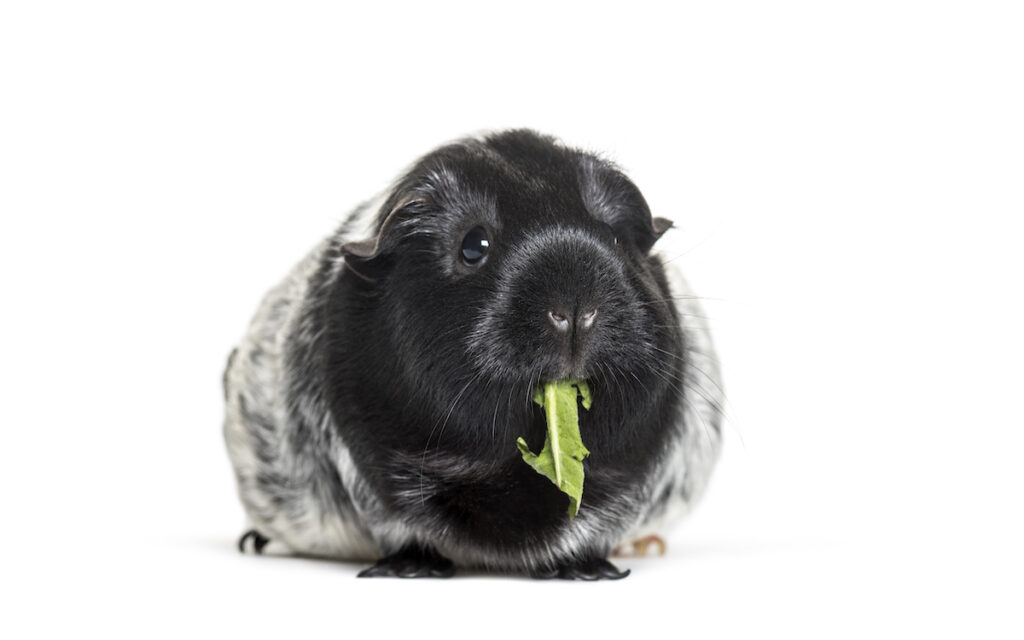
Gastrointestinal Problems in Guinea Pigs
Despite being herbivores who eat some greens in their diets, there are some dietary problems you should be aware of, before introducing basil to your guinea pig’s diet.
If, after introducing basil or any other new food to your pet’s diet, you see changes such as diarrhea, bloating, or increased tiredness in your guinea pig, it’s best to consult your veterinarian.
Lack of fibre
As explained earlier, fibre is needed to help keep everything moving through a guinea pig’s body. A lack of fibre means this movement becomes slower. Food staying for too long a period in specific parts of the digestive tract disturbs the overall digestive balance. This results in changes of pH and changes in the number of microorganisms, which can lead to diarrhea and indigestion.
Fresh basil leaves contain about 1.6 g of fiber per 100g, making it a reasonably good source of fibre, but not as high as some other greens.
Vitamin C deficiency
Who knew that guinea pigs are also susceptible to the pirate associated disease we call ‘Scurvy’?
Scurvy is the common word we used to describe the condition in a person or pet who doesn’t get as much vitamin C from their diet as they need.
Guinea pigs, like humans, are not able to synthesize their own vitamin C.
This means guinea pigs need to get 10-20mg of Vitamin C from their diet each day. While basil contains some Vitamin C, it’s not a particular rich source of Vitamin C compared to other guinea pig favorites. This means basil isn’t a particularly efficient in a guinea pig’s diet.
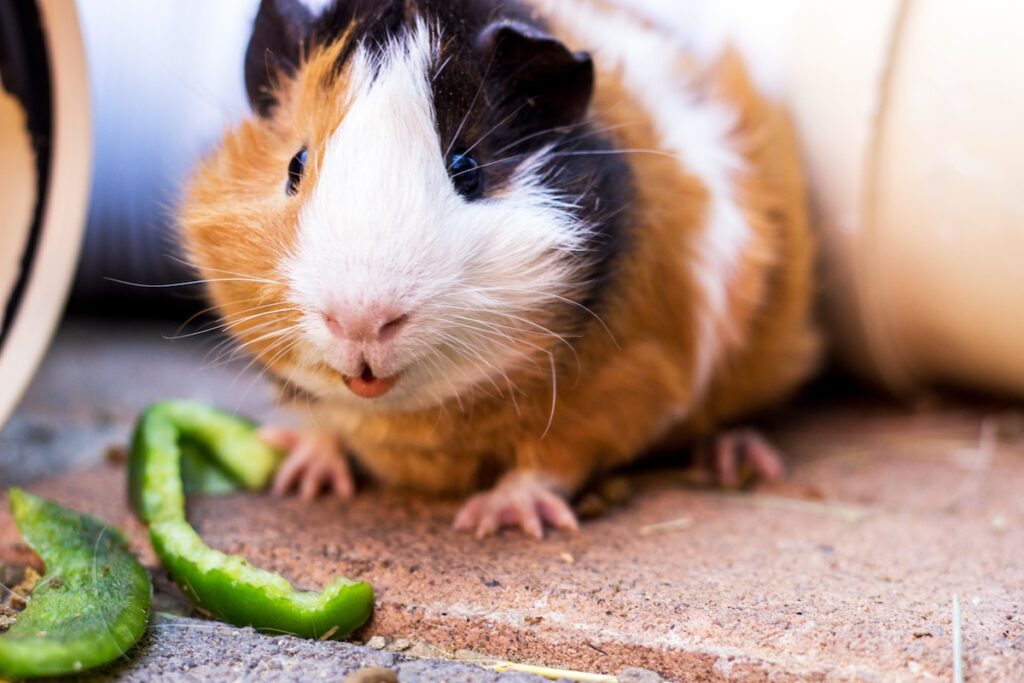
Vitamin C has a vital role in the collagen-making process. As a result, its deficiency can result in:
- Weakness
- Sore gums
- Hair loss and itchy skin
- Pain when moving
Hypercalcemia
It may seem like a complicated word, but it just means that there is too much calcium in the blood. It can be a result of inappropriate supplementation or an imbalanced diet, and can lead to bladder or kidney stones.
Hypercalcemia is relatively rare in guinea pigs, but is worth watching out for if they start eating basil given basil’s high calcium content.
How to Introduce Basil to Your Guinea Pig’s Diet
When giving all new food for the first time, it’s best for pet parents to give a reduced amount (a bite-sized piece) and then wait for 24 hours before giving a full portion. This will give enough time to see if a particular new food or medicine has caused a guinea pig’s allergic reaction.
Signs of allergic reactions in guinea pigs include:
- Difficulty breathing
- Changes in the skin, such as rashes
If you’re not sure if your guinea pig is suffering from an allergic reaction, then it’s best to discus it with your veterinarian.
Do guinea pigs like basil?
No two guinea pigs are the same. If a pet parent wants to see if their guinea pig enjoys basil, it is best to give them a sample first.
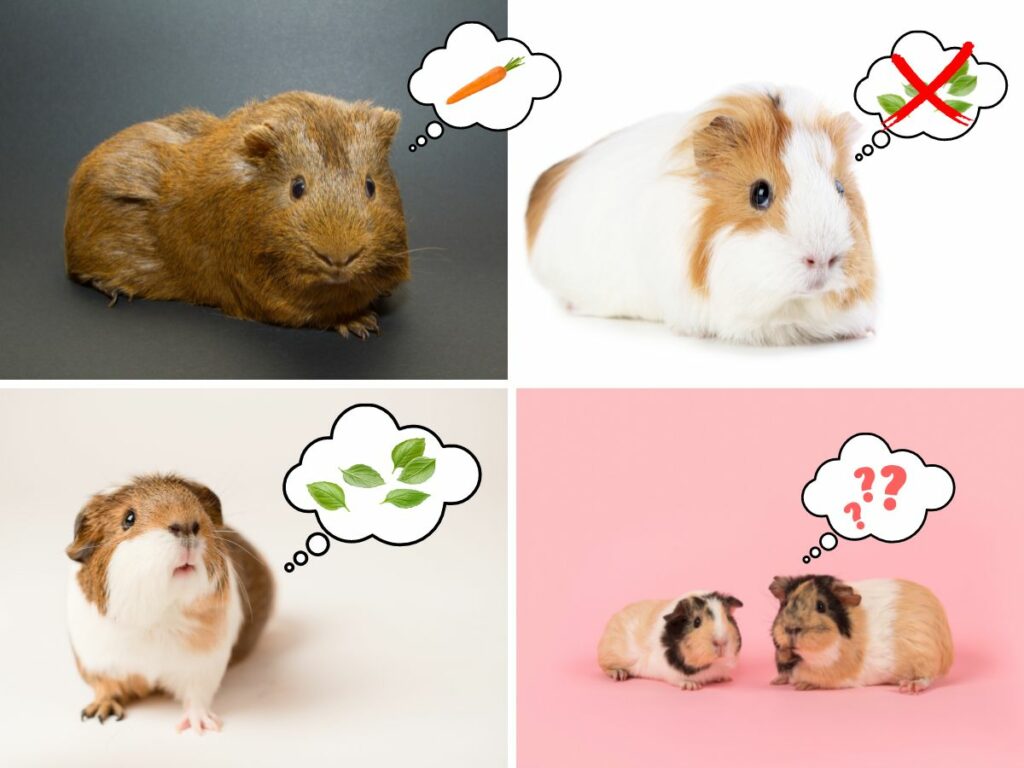
Some guinea pigs will enjoy this new type of fresh food, whereas other guinea pigs may not be a fan.
What Types of Basil Guinea Pigs Can Eat
Sweet Basil
Sweet basil is the most popular type of basil – the kind you find sold as a live plant in the supermarket. Sweet basil (or Genovese basil) can be safely enjoyed by both humans and guinea pigs.
Holy Basil
Holy basil is thought to have many health benefits in humans and in guinea pigs, such as preventing kidney stones!
Thai Basil
Thai basil has a slightly more liquorice or anise flavor to it, as compared to sweet basil. Your guinea pig may or may not like it!
Cinnamon Basil
Cinnamon basil is not only suitable for guinea pigs, but also very pretty with a distinctive, spicy cinnamon taste that may be too strong for your guinea pig (or they may love it). Look out for the purple stems and pretty pink flowers of cinnamon basil.
Lemon Basil or Lime Basil
Some guinea pigs enjoy the zesty flavor of lemon basil and lime basil.
Greek Basil
It’s fine to feed Greek basil to your guinea pig, just be sure to offer it along with other fresh vegetables at the same time.
Risks and benefits of basil in a guinea pig’s diet
Health Benefits of Basil for Guinea Pigs
- Vitamin C – Basil has about 18mg of Vitamin C per 100 grams of fresh leaves. This is low compared to other herbs and vegetables, meaning basil is not a great source of Vitamin C for your guinea pig. This is one reason basil should never be a mainstay in your guinea pig’s diet – it simply won’t give them enough Vitamin C to meet their requirements.
- Fiber – Basil can be a good addition of fiber to a guinea pig’s diet to keep things moving.
- Zinc – Fresh basil has 0.81 mg of zinc per 100g. Zinc is good for a guinea pig’s immune system.
- Antioxidants – Basil is full of antioxidants and antiinflammatory properties to help to slow the signs of aging.
Risks of Feeding Basil to Your Guinea Pig
Feeding more basil than recommended may cause:
- Liver disease – due to increased amounts of estragole.
- Kidney and bladder stones – as a result of too much calcium and phosphorus.
- Dehydration – due to increased urination.
- Gastrointestinal signs – such as bloating or diarrhea.
Special Considerations Before Feeding Your Guinea Pig Basil
Generally speaking, you only want to feed your guinea pig basil in moderation, and always test for allergies when introducing new food.
However, baby or nursing guinea pigs should not have basil. (Pregnant guinea pigs, however, can eat basil).
How Do I Serve Basil to a Guinea Pig?
Guinea pigs can eat basil safely in moderation, however, it’s worth delving into how to serve your guinea pig basil.
How Much Basil Can Guinea Pigs Eat?
Guinea pigs can eat 1 or 2 basil leaves once or twice a week. Basil plants should be considered as a ‘treat’ component of a guinea pig’s food, rather than a staple.
Can Guinea Pigs Eat Dried Basil?
It’s best not to feed your guinea pig dried basil. If you want to feed basil to guinea pigs, it’s best to give them fresh or raw basil and not dried or cooked basil.
Can Guinea Pigs Eat Basil Leaves?
Yes, fresh basil leaves are the part of the plant a guinea pig reacts to best.
Can Guinea Pigs Eat Basil Stems?
While you can try offering basil stems to your guinea pig, you may find they prefer the leaves. If your guinea pig does want to eat basil stems, be careful of the size of the basil stalks, and be sure to chop them into small bite-sized pieces.
Can Guinea Pigs Eat Basil Flowers?
Yes, and basil flowers may even taste sweeter than the actual basil leaf, depending on the type.
What should I feed to keep my guinea pig healthy?
In this next section, I will explain a healthy guinea pig diet.
Dietary staples
- Timothy hay is an important source of fiber for the continuous movement of food through the gastrointestinal tract and to ensure their teeth are worn away (a guinea pig’s teeth never stop growing throughout their lives). Always make sure they have access to plenty of fresh timothy hay at all times.
- Fresh vegetables – one cup of leafy greens such as lettuce, broccoli, kale, red or green pepper, and fresh herbs (described in the next section). Other veggies such as zucchini, tomatoes, or sweet potatoes can be given up to a couple of times per week.
- Fresh fruits – guinea pigs can enjoy a small treat offering of apple, orange, or banana a couple of times per week. Keep in mind that the portion should be small as the sugar content of the fruit is high.
- Vitamin C supplementation – feed such as fortified pellets can be a great way to ensure that a guinea pig receives all the essential nutrients they need. It’s best to refer to the feed guidelines on the packaging to see how much and to feed it alongside healthy vegetables.
Which other herbs can my guinea pig eat?
- Fennel
- Mint
- Parsley
- Dill
- Coriander
- Thyme
Don’t forget to introduce them slowly to avoid upsetting a guinea pig’s stomach!
Things to Avoid
- Chives
- Oregano
- Rosemary
- Tarragon
- Onion
- Garlic
- Sage
General points
- The fruits vegetables and supplements described above should be split into 3 rations, spread throughout the day after a breakfast ration of hay.
- Renew food daily to ensure it’s fresh – especially any pellets as the vitamin C inside them degrades very quickly.
- Ceramic food dishes tend to be better than plastic ones because they can’t be chewed and last longer.
- Always make sure your guinea pig has access to clean and fresh water and clean the food bowl with warm soapy water once per week.
- Always thoroughly wash basil, herbs and other fresh produce before giving them to your guinea pig.
- Weigh your guinea pig every few weeks to help monitor if they have gained or lost weight.
- If you notice that your guinea pig’s teeth are looking overgrown, contact your veterinarian.
- Change the components of the diets within the guidelines mentioned above from time to time to keep things interesting for your guinea pig.
- Introduce new components gradually over time and always test first for allergies as mentioned above.
Final Thoughts About Guinea Pigs Eating Basil
To summarise, guinea pigs can eat basil as an occasional source of essential nutrients and to help keep their diet interesting, but it shouldn’t be a mainstay of their diet, and should never replace other elements of a healthy guinea pig diet.
Does your guinea pig enjoy this tasty herb? Tell us about it in the comments below!
Originally from the UK, Charlotte is an undergraduate veterinary medicine student who will graduate in 2023 from the University of Zagreb, Faculty of Veterinary Medicine. She is a volunteer at her university’s obstetrical clinic, equine clinic and an editor of her university’s scientific journal. She loves to travel and has undertaken internships in veterinary institutions in Belgium, Austria and Spain outside of her veterinary medicine studies within an international program in Croatia. In her spare time she loves taking long walks with her 13-year-old dog Chiki and cooking (basil is one of her favorite herbs!)
